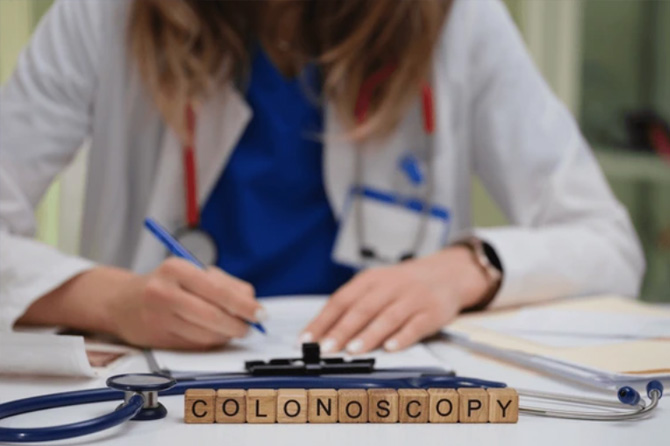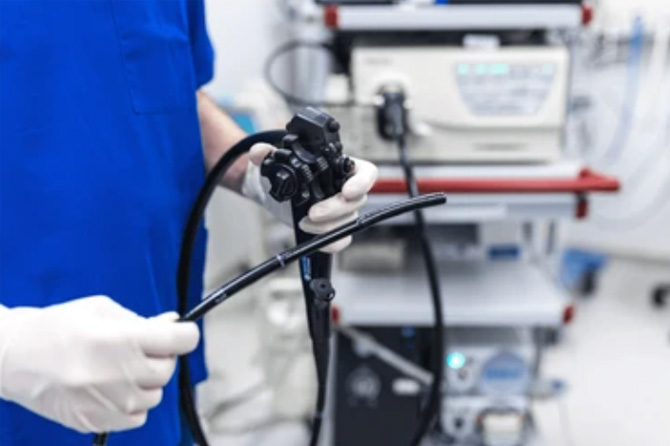A colonoscopy is a medical procedure that allows doctors to examine the inner lining of the large intestine (colon) and rectum. It is performed using a flexible tube called a colonoscope, which is equipped with a light and a camera. This tool is gently inserted through the rectum and into the colon, providing real-time images to help identify any abnormalities such as polyps, inflammation, or signs of colorectal cancer.
Colonoscopy


Colonoscopy
What is a Colonoscopy?
Why is a Colonoscopy Important?
Colonoscopy is a crucial screening tool for detecting colorectal cancer, which is one of the leading causes of cancer-related deaths. It can also help diagnose various gastrointestinal issues, such as unexplained abdominal pain, bleeding, or changes in bowel habits. By detecting problems early, a colonoscopy can lead to timely intervention and treatment.
Who Should Get a Colonoscopy?
Routine Screening: Most adults should begin regular screenings at age 50, or earlier if there is a family history of colorectal cancer or other risk factors.
Symptoms: If you experience symptoms like persistent abdominal pain, rectal bleeding, or significant changes in bowel habits, a colonoscopy may be recommended.
What to Expect
Before the procedure, you will be given specific instructions by the clinic on how to prepare, which typically includes a special diet and laxatives to clear your bowel. The procedure itself usually takes about 15-60 minutes and is performed under sedation for your comfort. At West GTA Endoscopy, all procedures are completed with sedation guided by a dedicated anesthesia-physician. You will start the procedure lying on the left side of body.
After the colonoscopy, you’ll be monitored for a short time until the sedation wears off. It’s normal to feel some cramping or bloating, but you’ll receive instructions on what to watch for afterward.
Additional procedures
During a colonoscopy, your doctor may perform a polypectomy or biopsy to gather more information about any abnormalities found in the colon.
Polypectomy
A polypectomy is the removal of polyps—small growths on the inner lining of the colon. While most polyps are benign (non-cancerous), some can develop into cancer over time. By removing them during the colonoscopy, your doctor can help prevent the progression to colorectal cancer. The procedure is typically quick and can often be done using specialized tools passed through the colonoscope.
Biopsy
A biopsy involves taking a small tissue sample from the colon lining or from a polyp for further examination. This is done when there are suspicious areas that need to be analyzed more closely. The tissue sample is sent to a laboratory where it is examined under a microscope to determine if there are any signs of cancer or other diseases.
What to Expect
If a polypectomy or biopsy is performed during your colonoscopy, you may not notice any difference in your recovery process. After the procedure, you’ll be monitored to ensure you’re stable before going home. Your doctor will discuss the results with you and provide any necessary follow-up care.
Colonoscopy risks
While a colonoscopy is a generally safe procedure and is essential for screening and diagnosing various gastrointestinal conditions, it is important to be aware of the potential risks involved. Understanding these risks can help you make informed decisions about your healthcare.
Common Risks
- Discomfort or Pain: Some patients may experience mild cramping or bloating during or after the procedure. This is usually temporary and resolves quickly.
- Bleeding: There is a small risk of bleeding, especially if a polypectomy or biopsy is performed. Most cases of bleeding are minor and can be managed easily, but in rare instances, more significant bleeding may require further treatment.
- Perforation: Although extremely rare, there is a small risk of perforation (a tear in the wall of the colon). This can lead to infection and may require surgical intervention.
- Adverse Reactions to Sedation: Sedation is often used during the procedure to ensure your comfort. There is a minimal risk of an allergic reaction or complications related to anesthesia.

